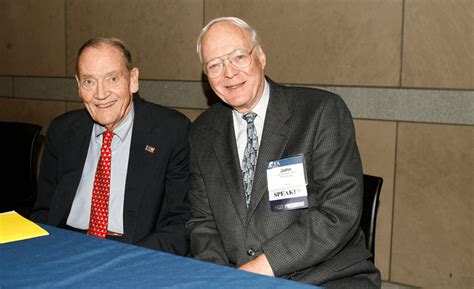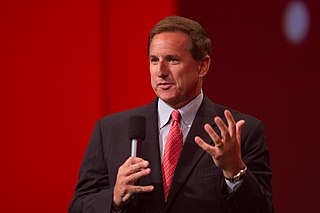A Quote by Seth Klarman
Occasionally we are asked whether it would make sense to modify our investment strategy to perform better in today's financial climate. Our answer, as you might guess, is: No! It would be easyfor us to capitulate to the runaway bull market in growth and technology stocks. And foolhardy. And irresponsible. And unconscionable. It is always easiest to run with the herd; at times, it can take a deep reservoir of courage and conviction to stand apart from it. Yet distancing yourself from the crowd is an essential component of long-term investment success.
Quote Topics
Always
Answer
Apart
Asked
Better
Bull
Bull Market
Climate
Component
Conviction
Courage
Crowd
Deep
Easiest
Essential
Financial
Foolhardy
Growth
Guess
Herd
Investment
Investment Success
Irresponsible
Long
Long-Term
Make
Make Sense
Market
Might
Modify
Occasionally
Our
Perform
Reservoir
Run
Runaway
Sense
Stand
Stocks
Strategy
Success
Take
Technology
Term
Times
Today
Us
Whether
Would
Would Be
Yourself
Related Quotes
The spectacle of modern investment markets has sometimes moved me towards the conclusion that to make the purchase of an investment permanent and indissoluble, like marriage, except by reason of death or other grave cause, might be a useful remedy for our contemporary evils. For this would force the investor to direct his mind to the long-term prospects and to those only.
Investment in the eradication of hunger today is a good business decision. If we fail to make this investment, it is doubtful that we can sustain healthy economic growth. Without this investment, our nation may disintegrate into a country sharply divided between those who have enough to eat and those who do not.
Below, we itemize some of the quite different lessons investors seem to have learned as of late 2009 - false lessons, we believe. To not only learn but also effectively implement investment lessons requires a disciplined, often contrary, and long-term-oriented investment approach. It requires a resolute focus on risk aversion rather than maximizing immediate returns, as well as an understanding of history, a sense of financial market cycles, and, at times, extraordinary patience.
Cash - in savings accounts, short-term CDs or money market deposits - is great for an emergency fund. But to fulfill a long-term investment goal like funding your retirement, consider buying stocks. The more distant your financial target, the longer inflation will gnaw at the purchasing power of your money.
Pressure to produce over the short term - a gun to the head of everyone - encourages excessive risk taking which manifests itself in several ways - fully invested posture at all times, the use of leverage, and a market centric orientation that makes it difficult to stand apart from the crowd and take a long term perspective.
It's counterproductive to lower my price, because I have to sell more units to make up for that lost revenue. Generating brand-new products can take a long time. Improving service is typically the quickest way that I can take market share. So aligning technology strategy to better service customers becomes an essential path to revenue growth.
These results add up to perhaps the most important investment lesson of all that can be drawn from this week's market anniversaries: Predicting turns in the market is incredibly difficult to do consistently well. That means that, if your investment strategy going forward is dependent on your anticipating major market turning points, your chances of success are extremely low.
Communications and commerce are global; investment is mobile; technology is almost magical; and ambition for a better life is now universal. We earn our livelihood in peaceful competition with people all across the earth. Profound and powerful forces are shaking and remaking our world, and the urgent question of our time is whether we can make change our friend and not our enemy.































